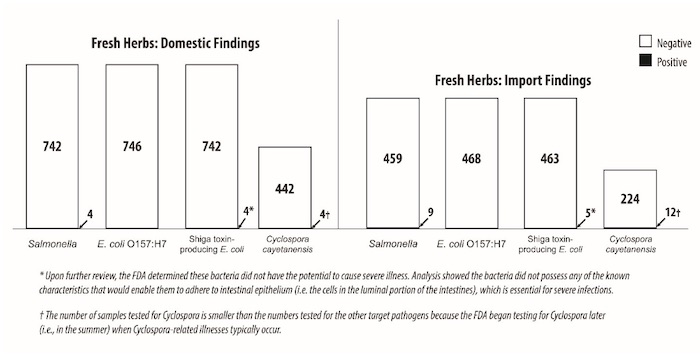After years of outbreaks linked to fresh herbs, the U.S. Food and Drug Administration (FDA) created a sampling program to test for the parasite Cyclospora and for E. coli and Salmonella bacteria. The program found Cyclospora in 5 percent of imported herbs sampled last fall and about 1 percent of domestically produced herbs.
The FDA began collecting and testing processed avocado, cilantro, parsley and basil in October 2017. These two assignments were anticipated to last about two years. The information that follows presents the laboratory results through September 30, 2019

What is Cyclospora?
Cyclospora is a parasite native to subtropical climates. Infections are often associated with travel outside the U.S. but increasingly outbreaks have been linked to imported produce.
These outbreaks occur when people eat produce contaminated with microscopic amounts of fecal matter containing Cyclospora. The hallmark of a Cyclospora infection is profuse, often explosive diarrhea. Other symptoms include headache, abdominal cramps, nausea fatigue, weight loss and other flu-like symptoms.
In 2018, two multi-state Cyclospora outbreaks were linked to imported produce. One was linked to salads sold at McDonald’s, the other was linked to Del Monte vegetable trays sold at Kwik Trip stores. And last summer, a Cyclopora outbreak linked to fresh basil imported from Mexico sickened 241 people from 11 states. Six people were hospitalized.
If you have been sickened by Cyclospora and would like a free consultation with our award-winning Cyclospora Team, please call 1 (888) 377-8900 (toll-free), send a text to 612-261-0856 or complete the form below. The consultation is free and we don’t get paid unless we win.